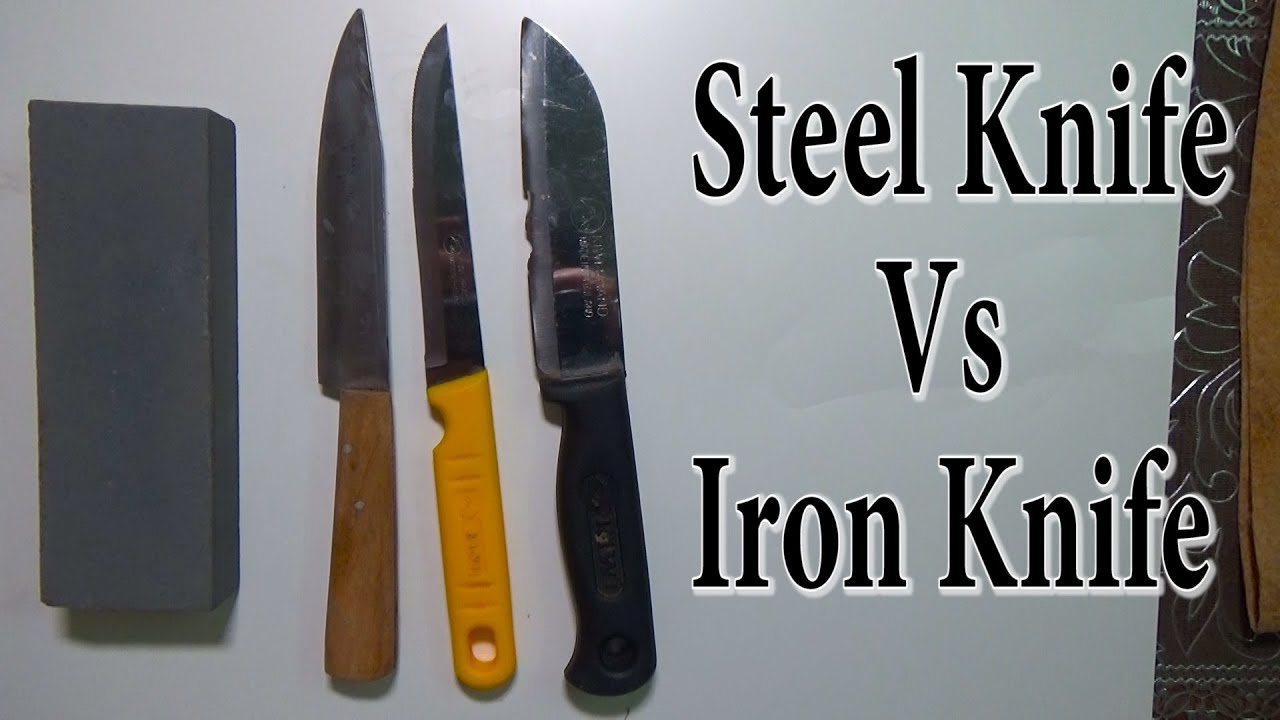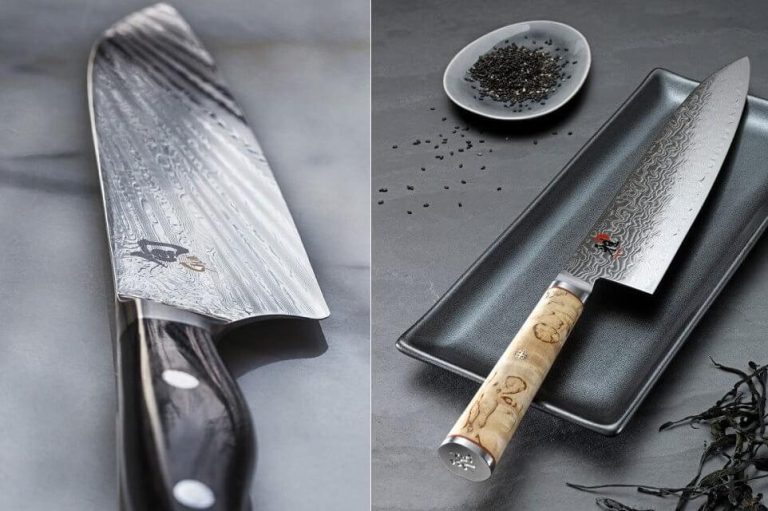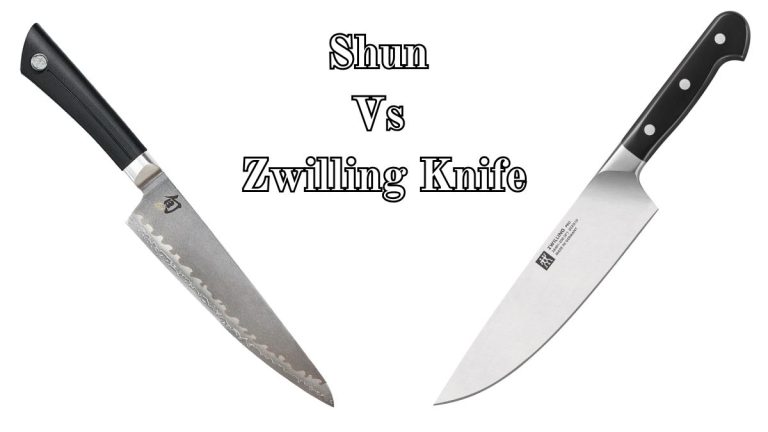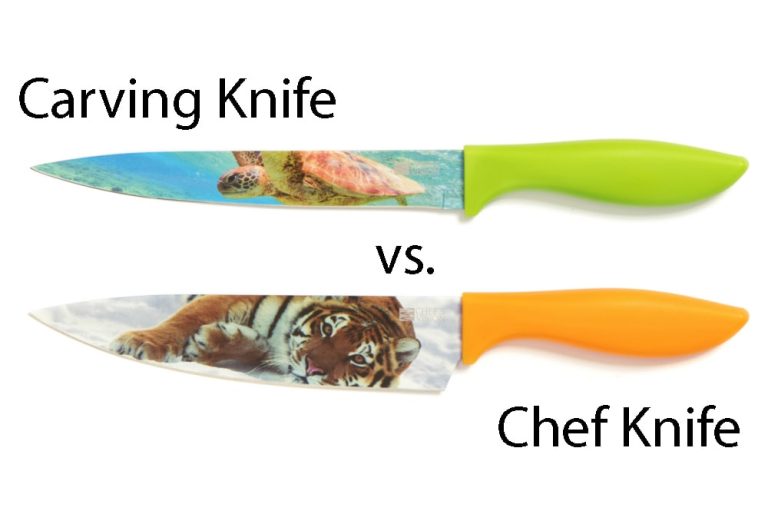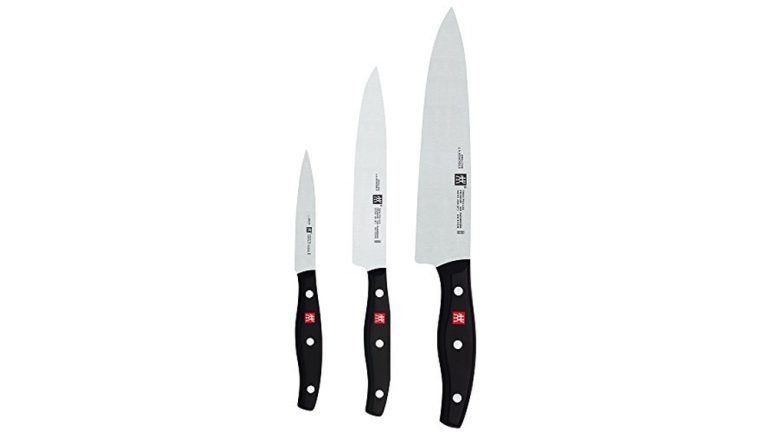Iron Knife Vs Steel Knife: Which One Reigns Supreme?
Iron knives and steel knives both have their strengths. Choosing the right one depends on your needs.
Knives are essential tools in the kitchen, and their material can significantly impact performance. Iron knives, known for their durability and ease of sharpening, have been used for centuries. Steel knives, on the other hand, offer remarkable strength and resistance to corrosion.
This comparison explores the unique features of both iron and steel knives, helping you understand their benefits and limitations. Whether you’re a professional chef or a home cook, knowing the differences can help you make an informed decision. Let’s delve deeper into the world of iron and steel knives to see which one suits your culinary needs best.
Material Composition
Understanding the material composition of knives is crucial for choosing the right one. Different materials offer unique benefits and drawbacks. This section explores the composition of iron and steel knives.
Iron Knife Composition
Iron knives are made from pure iron or iron alloys. They are typically soft and easy to sharpen. Pure iron contains few impurities, making it relatively malleable. This allows for easier shaping and forging. Iron knives may rust quickly without proper care. To combat this, some knives mix iron with other elements. These elements can include carbon, which adds hardness. Despite this, iron knives still remain prone to corrosion.
Steel Knife Composition
Steel knives are made from iron mixed with carbon. The amount of carbon affects the blade’s hardness and strength. High carbon steel is very hard but can be brittle. Low carbon steel is softer but more flexible. Steel knives often contain other elements like chromium. Chromium improves the blade’s resistance to rust. Manganese may also be added to enhance toughness. This combination makes steel knives durable and long-lasting. Stainless steel, a popular choice, contains at least 10.5% chromium. This makes it highly resistant to staining and rusting.
Durability And Strength
Choosing between an iron knife and a steel knife can be challenging. Both materials have their unique strengths and weaknesses. Understanding their durability and strength is crucial for making the right choice. This section will delve into the durability of iron and steel knives, comparing their performance and longevity.
Iron Knife Durability
Iron knives are known for their historical significance. They have been used for centuries. These knives are sturdy and can withstand heavy use. However, iron is prone to rust. It requires regular maintenance to prevent corrosion. Iron knives may also chip or break if used improperly. Despite these drawbacks, iron knives can last a long time with proper care.
Steel Knife Durability
Steel knives are popular in modern kitchens. They offer superior durability compared to iron knives. Steel is less likely to rust and is more resistant to corrosion. Stainless steel knives, in particular, require less maintenance. They are also less prone to chipping. This makes them ideal for everyday use. Additionally, steel knives retain their sharpness longer. This means less frequent sharpening and a longer lifespan.
Sharpness And Edge Retention
Sharpness and edge retention are crucial factors in knife performance. These features determine how effectively a knife slices and how long it maintains its cutting ability. Different materials, like iron and steel, affect these characteristics. This section explores the sharpness and edge retention of iron and steel knives.
Iron Knife Sharpness
Iron knives can achieve a decent level of sharpness. They are easy to sharpen, making them suitable for tasks requiring a keen edge. However, iron is softer than steel. This softness means iron knives dull more quickly. Frequent sharpening is necessary to maintain their effectiveness.
Steel Knife Sharpness
Steel knives are known for their superior sharpness. They can be honed to a razor-sharp edge. Steel’s hardness allows these knives to retain sharpness longer than iron knives. This feature reduces the need for constant sharpening. Thus, steel knives remain efficient for extended periods.

Credit: knifewear.com
Corrosion Resistance
Choosing between an iron knife and a steel knife often boils down to corrosion resistance. Understanding how each material reacts to moisture and air can help in making an informed decision.
Iron Knife Corrosion
Iron knives are highly susceptible to rust. They corrode quickly when exposed to moisture. This makes them less ideal for environments where they might get wet. Iron forms a reddish-brown layer of iron oxide, or rust, that deteriorates the blade.
Maintaining an iron knife involves regular oiling and drying. Failing to do so can lead to rapid corrosion. This constant upkeep can be cumbersome for those who use their knives frequently.
Steel Knife Corrosion
Steel knives, especially those made from stainless steel, offer excellent corrosion resistance. Stainless steel contains chromium, which forms a protective layer that prevents rust. This makes steel knives more durable in wet conditions.
Carbon steel knives, though not as resistant as stainless steel, still fare better than iron knives. They require occasional oiling to maintain their resistance. The higher the carbon content, the more care the knife needs.
Below is a comparison table for quick reference:
| Feature | Iron Knife | Steel Knife |
|---|---|---|
| Corrosion Resistance | Poor | Good (Stainless Steel) / Moderate (Carbon Steel) |
| Maintenance | High | Low (Stainless Steel) / Moderate (Carbon Steel) |
Maintenance And Care
Maintenance and care are crucial for keeping your knives in top condition. Proper maintenance ensures your knives remain sharp and last longer. Both iron and steel knives have unique care requirements. Let’s explore how to maintain each type.
Iron Knife Maintenance
Iron knives require specific care to prevent rust and maintain sharpness. Here are some essential tips:
- Clean immediately: Always clean your iron knife right after use. Use warm water and mild soap.
- Dry thoroughly: Wipe the knife dry with a soft cloth. Never leave it to air dry.
- Oil regularly: Apply a thin layer of food-safe oil to the blade. This prevents rust.
- Sharpen often: Iron knives need frequent sharpening. Use a whetstone for best results.
- Store properly: Store in a dry place. Use a knife block or magnetic strip.
Steel Knife Maintenance
Steel knives are more resistant to rust but still need care. Follow these steps:
- Clean after use: Wash with warm water and mild soap. Avoid harsh detergents.
- Dry completely: Use a soft cloth to dry the knife. Ensure no moisture remains.
- Hone regularly: Use a honing rod to keep the edge aligned. Do this every few uses.
- Sharpen as needed: Sharpen with a whetstone or professional service. Do this when the knife feels dull.
- Store safely: Keep in a knife block, sheath, or magnetic strip. Avoid drawers.

Credit: www.youtube.com
Cost And Value
When choosing between an iron knife and a steel knife, cost and value play crucial roles. Both types have unique characteristics that affect their prices. Understanding these differences can help you make an informed decision.
Iron Knife Cost
Iron knives tend to be more affordable. This is due to the simpler production process. Iron is easier to mold and shape. This reduces manufacturing costs. However, iron knives require frequent sharpening. This can add to maintenance expenses over time. Despite the lower initial price, consider the long-term costs.
Steel Knife Cost
Steel knives are generally more expensive. They use advanced manufacturing techniques. Steel is harder and more durable. This makes the production process costlier. But, steel knives hold their edge longer. They need less frequent sharpening. This can save you money in the long run. The initial investment is higher, but the overall value is better.
Ideal Uses
Choosing between an iron knife and a steel knife depends on the task. Each type has strengths and weaknesses. Knowing their ideal uses can help you make the right choice. Let’s explore the best uses for both iron and steel knives.
Best Uses For Iron Knives
Iron knives excel in specific situations. They are best for traditional or historical cooking. Iron has an old-world charm. It brings authenticity to your kitchen.
- Butchering: Iron knives are sturdy. They handle heavy-duty tasks well. Butchering large animals is a prime example.
- Outdoor Survival: Iron knives are durable. They withstand harsh conditions. Ideal for camping or survival scenarios.
- Historical Reenactments: Iron knives are perfect for historical reenactments. They add a touch of authenticity.
Best Uses For Steel Knives
Steel knives are versatile and modern. They suit a wide range of tasks. They are a staple in most kitchens today.
- Precision Cutting: Steel knives are sharp. They are perfect for precision tasks. Slicing vegetables or filleting fish are good examples.
- Everyday Cooking: Steel knives are reliable. They are great for daily cooking. Chopping, slicing, and dicing are made easy.
- Long-Term Use: Steel knives are resistant to rust. They last longer with proper care. They are ideal for long-term use.
Below is a table summarizing the ideal uses for both types of knives:
| Iron Knife | Steel Knife |
|---|---|
| Butchering | Precision Cutting |
| Outdoor Survival | Everyday Cooking |
| Historical Reenactments | Long-Term Use |
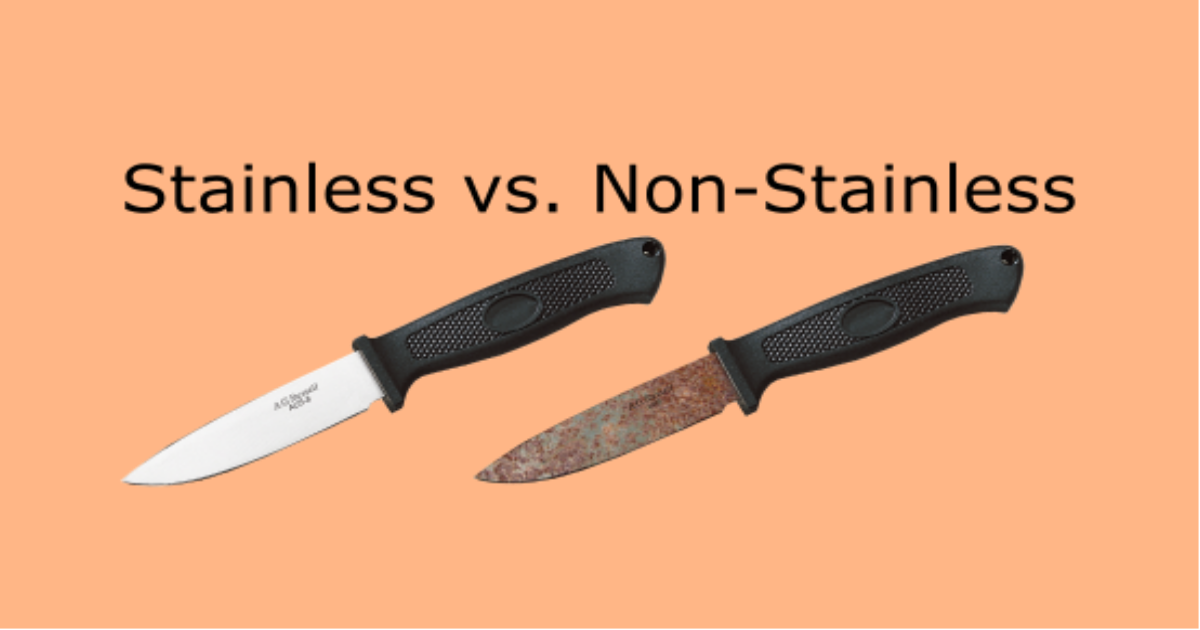
Credit: agrussell.com
Frequently Asked Questions
What Are The Main Differences Between Iron And Steel Knives?
Iron knives are less durable and can rust easily. Steel knives are stronger, more durable, and resistant to corrosion. Steel knives also maintain a sharper edge for longer.
Which Knife Is Better For Everyday Use?
Steel knives are better for everyday use. They are more durable, maintain sharpness longer, and resist rust. Steel knives are also easier to maintain and clean.
Do Iron Knives Require Special Care?
Yes, iron knives require special care. They need regular oiling to prevent rust. Iron knives should be dried immediately after washing to avoid corrosion.
Are Steel Knives More Expensive Than Iron Knives?
Yes, steel knives are generally more expensive than iron knives. Their durability, sharpness, and resistance to rust justify the higher cost. Investing in a steel knife can be cost-effective in the long run.
Conclusion
Choosing between an iron knife and a steel knife depends on your needs. Iron knives offer a traditional touch and are easier to sharpen. Steel knives, however, provide durability and longer edge retention. Both have their unique benefits. Think about your cooking style and maintenance preference.
Ultimately, the best knife is the one that fits your hand and purpose. Happy cooking and cutting!

